
Front_Office_Operations
.pdf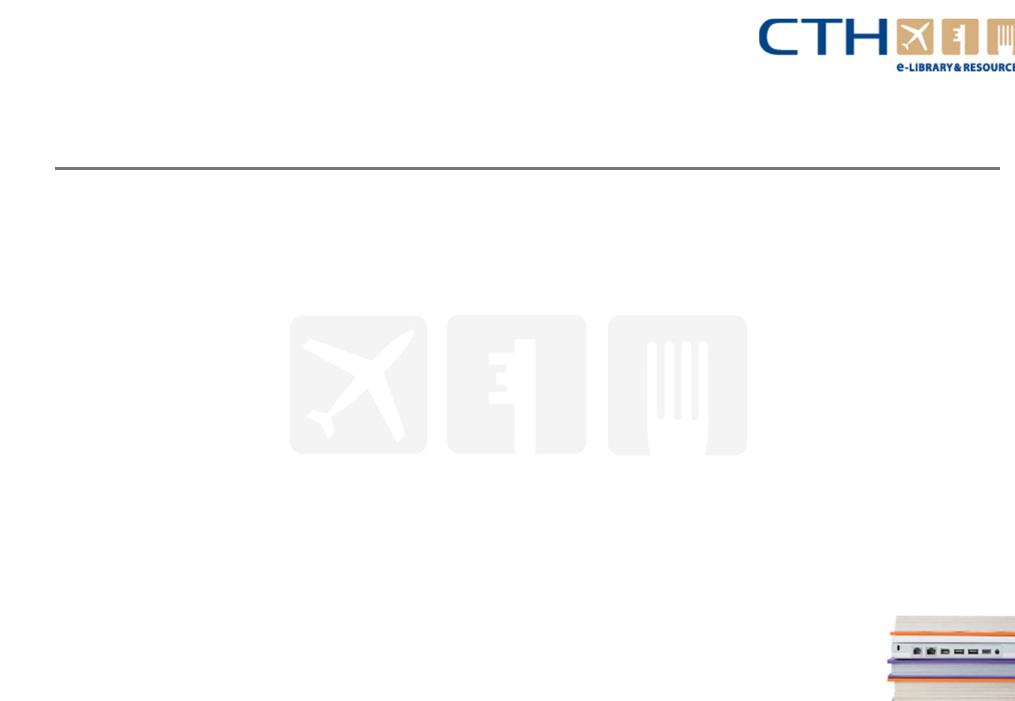
Chapter 4 – Check-out procedures
Checking-out guests
1.3 Express and self check-out
As express check-in, the hotel may offer facilities for guests who may need to check-out early, before reception is open - or who simply wish to avoid a busy period at the cashier's desk.
In a manual system, this may be done by gaining authorisation from the guest to debit the entire amount of the bill to the guest's credit card. An express check-out form may be supplied to guests on check-in, or on request, or made available with in-room information, for completion in advance of departure. The guest supplies all relevant credit card details on the form (or the cashier may take a credit card imprint) and signs a declaration that (s)he authorises the hotel to debit the full amount of the bill to the designated credit card, and to send the bill and receipt to a given address: this substitutes for a signature on the credit card voucher.
The guest may be supplied with a copy of the bill as it currently stands, the night before departure, as a guide to the approximate total of the account. When the guest leaves, (s)he simply puts the express check-out form - and room key - In a designated 'drop box'. The credit card payment can then be processed by the cashier, in the usual way, and a copy of the finalised bill and credit card voucher/receipt posted or e-mailed to the guest.
www.cthresources.com |
Page 211 |
|
www.cthawards.com |

Chapter 4 – Check-out procedures
Checking-out guests
In a computerised system, as for self check-in, the guest may be able to simply use a kiosk or computer terminal at reception (or even in-room), which:
●Asks the guest to key in the name and room number, and/or to swipe the electronic key or credit card previously logged on the system.
●Displays and/or prints out the account to date.
●Invites the guest to confirm/accept the bill (or flag items for query).
●Invites the guest to insert or swipe their credit card, in order to process a credit card payment.
●Issues a receipt (or logs the need to send a copy bill and receipt to the guest at his or her registered address).
www.cthresources.com |
Page 212 |
|
www.cthawards.com |
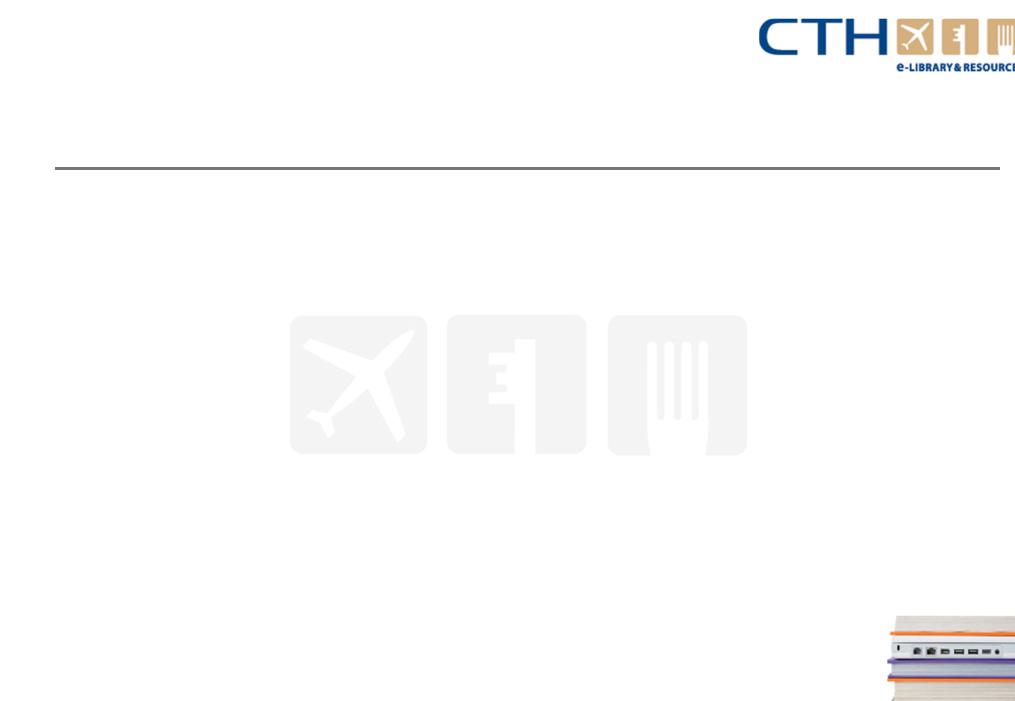
Chapter 4 – Check-out procedures
Checking-out guests
1.4 Group check-out
Just as with group check-in, the main issue will be to minimise chaos! A separate group waiting area or room may help to get the group out of its rooms (so that housekeeping can begin preparing them for re-Ietting), in one place (so the group leader can keep them together) - and away from the front desk (so they do not overwhelm the cashier and other departing guests).
The front desk should have a departures list for the group, so that it can follow a checklist for ensuring that:
●All keys have been returned.
●The tour leader has countersigned a voucher itemising all the accommodation and meal charges the tour company will be responsible for.
●Individual guests' extras bills (if any) have been paid.
●All luggage cleared from the rooms and any storage areas.
www.cthresources.com |
Page 213 |
|
www.cthawards.com |
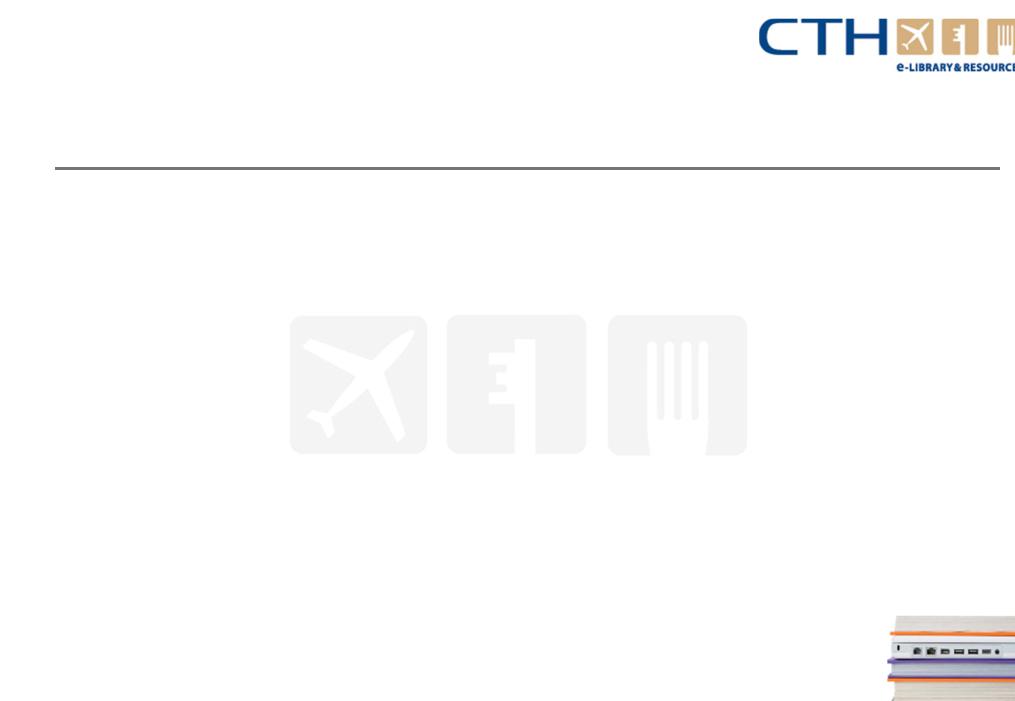
Chapter 4 – Check-out procedures
Checking-out guests
1.4 Group check-out continued…
The hotel may co-opt the group leader to gather keys and remind guests about extras bills, in order to minimise to-ing and fro-ing. If the group is due to leave later than the standard check-out time, the hotel may offer a waiting or 'hospitality' room, enabling group members to rest, store hand luggage and use bathroom facilities during the period between check-in from individual rooms and departure. This is a valued service for tour guests - but it also enables the hotel to clear individual rooms for servicing at the usual time, and to avoid having groups milling around reception.
www.cthresources.com |
Page 214 |
|
www.cthawards.com |

Chapter 4 – Check-out procedures
Preparing and presenting guest bills
2.Preparing and presenting guest bills
2.1Guest accounting and billing systems
2.2Recording deposits and pre-payments
2.3Agency (commissionable) bookings
2.4Posting charges
2.5Presenting the bill
2.6Group billing arrangements
2.7Handling accounts queries
www.cthresources.com |
Page 215 |
|
www.cthawards.com |
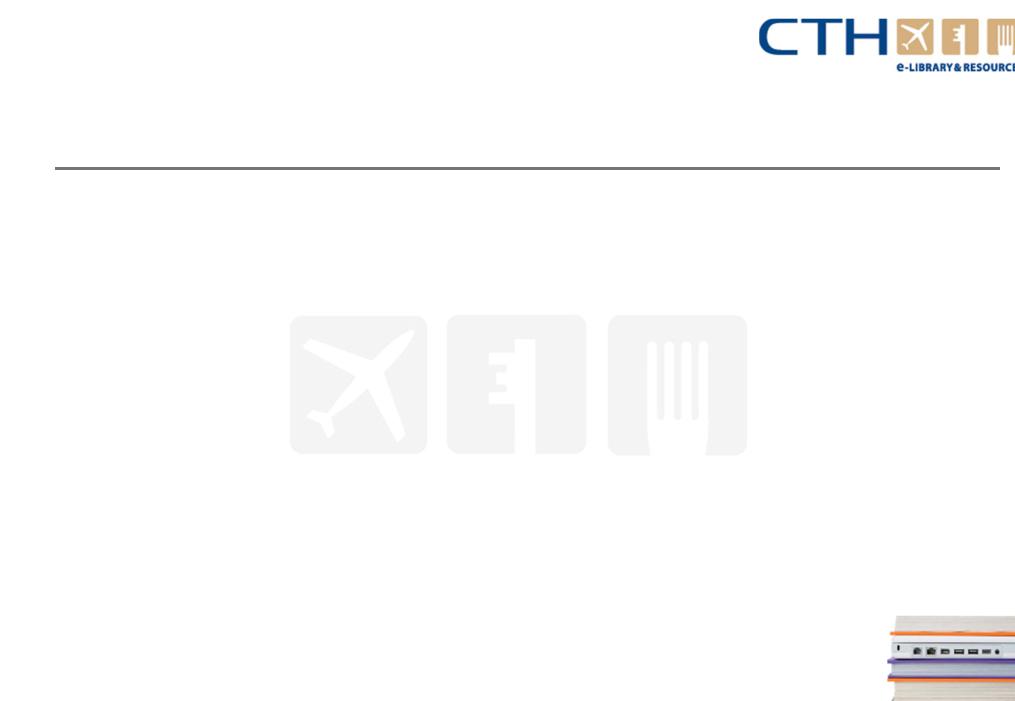
Chapter 4 – Check-out procedures
Preparing and presenting guest bills
Guests may have paid a deposit (or even the whole accommodation amount) in advance, to confirm their reservation, this will have to be deducted from the total bill, to provide the balance still owing.
And guests may have incurred a number of additional charges during their stay: meals and drinks from the hotel restaurant, bar or room service; extra nights' accommodation; drinks and snacks from the inroom mini-bar; newspapers (if charged for); laundry services; telephone calls made from the room phone; additional services (e.g.. treatments In the hotel spa); and so on. In most hotels, these items will not be paid for as they are purchased: they will be 'charged to the room'. In the restaurant or bar, e.g.. guests may give their room number and sign a voucher or 'chitty' for the services they have received. In the case of the mini-bar, they will be asked to fill out a form with the items they have consumed. These details will be passed to reception and added to the guest's main room account.
www.cthresources.com |
Page 216 |
|
www.cthawards.com |

Chapter 4 – Check-out procedures
Preparing and presenting guest bills
Keeping track of all these items involves a lot of record-keeping I Abbott & Lewry(Front Office) suggest that the process is both complex and sensitive, with particular challenges arising from the fact that:
●The hotel is effectively giving guests credit for the duration of their stay: allowing them to consume goods and services now, and pay later. This is not unusual in business dealings, of course, but hotels are in the unusual position of giving potentially substantial credit to people about whom they may know very little. There's a risk of inability or failure to pay, which must be planned for.
●Guests may be incurring additional charges in different departments of the hotel, right up to departure. There needs to be fast, accurate notification of this information to the billing or accounting section, in order for all charges to be included on the guest's bill at check-out.
The keeping of guest account records and preparation of bills is usually the responsibility of a billing or accounting section (in large hotels), while the handling of settlement (payment) is the responsibility of the hotel cashier. In a smaller hotel, this may all be handled by available front desk staff, so receptionists need sufficient numerical (and cash handling) skills to cope with whatever accounting procedures the hotel uses.
www.cthresources.com |
Page 217 |
|
www.cthawards.com |

Chapter 4 – Check-out procedures
Preparing and presenting guest bills
2.1 Guest accounting and billing systems
Many hotels now use computerised guest accounting and billing systems - which keep a running total of what each guest owes (taking into account deposits, prepayments and additional charges) as each item is entered or 'posted'. Front office staff can print out the running total at any time, if a guest wishes to know the current status of his or her account (sometimes also called a 'folio').
With a manual system, each guest account needs to be balanced and totalled daily in a tabular ledger: the hotel's running log of each day's business, including for each room:
●The running total owed (outstanding charges), brought forward from the day before
●The day's accommodation and meal charges, as appropriate to the rate or package terms agreed
●Itemised additional charges incurred under various headings: bar, restaurant, phone and so on
●A running total of outstanding charges at the end of the day
●Any payments made against the amount owing (e.g.. prepayments or deposits) and any outstanding amounts to be carried forward to the next day. The payments made plus amounts carried forward should therefore equal(balance) the amount owing for each day. On settlement of the final
account, at check-out, there will be no amounts carried forward: payments should balance
the amount owing.
www.cthresources.com |
Page 218 |
|
www.cthawards.com |
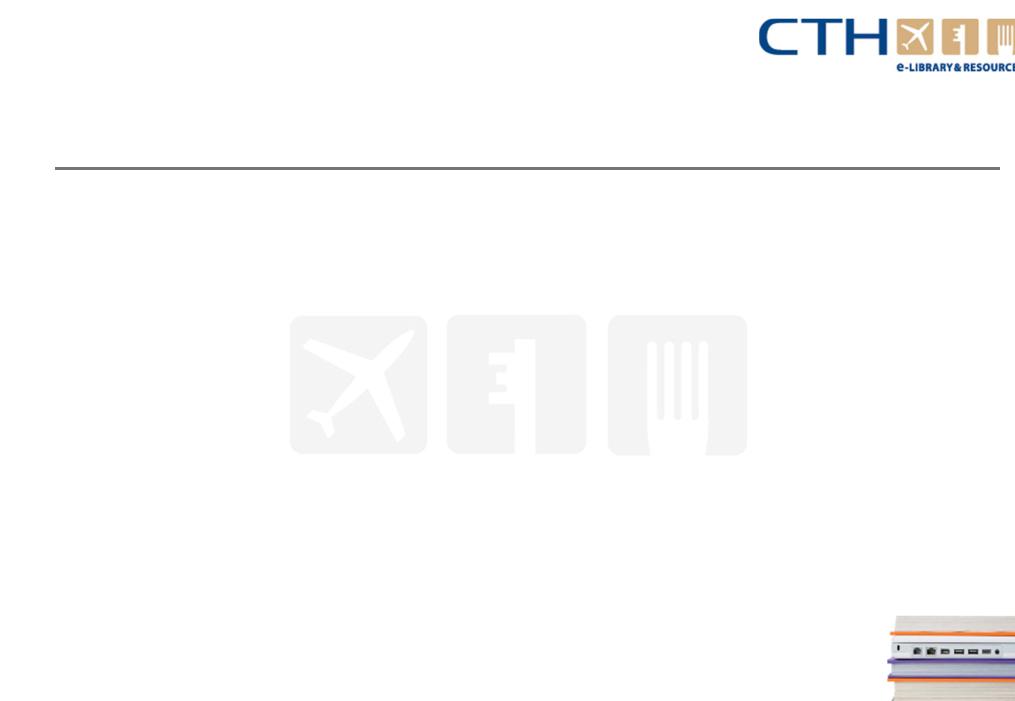
Chapter 4 – Check-out procedures
Preparing and presenting guest bills
2.2 Recording deposits and pre-payments
●Receipt of a deposit or pre-payment should immediately be recorded In the reservations status records. If pre-payment is required to guarantee a reservation, any deposit made will be shown clearly in the booking confirmation documents and invoice, requiring the prospective guest to pay the outstanding balance by a stated date. The guest will normally be sent a receipt for any deposit or prepayment received.
●A deposit or prepayment will be entered in the advance deposit ledger. The amount will also be entered in guest account or billing records when the guest checks-in and the bill is opened so that the guest has an opening credit balance reflecting the deposit.
●The reservation records, confirmations and guest account should be cross-checked, to ensure that the received/acknowledged deposit amount tallies with the amount shown on the guest account.
www.cthresources.com |
Page 219 |
|
www.cthawards.com |

Chapter 4 – Check-out procedures
Preparing and presenting guest bills
2.2 Recording deposits and pre-payments continued …
●There will be a separate ('ledger account') entry for arrangements whereby the hotel will claim the amount of a guest's bill from another party at a later date (e.g.. a tour company or a corporation
with a credit account at the hotel), by issuing an invoice or statement. The guest may have pre-paid a tour company or conference organiser for accommodation and/or meals, and present a voucher or coupon confirming this fact to the hotel. Having checked that this is a legitimate, agreed arrangement (and received authorisation), the charges covered can be recorded as a ledger entry.
www.cthresources.com |
Page 220 |
|
www.cthawards.com |
